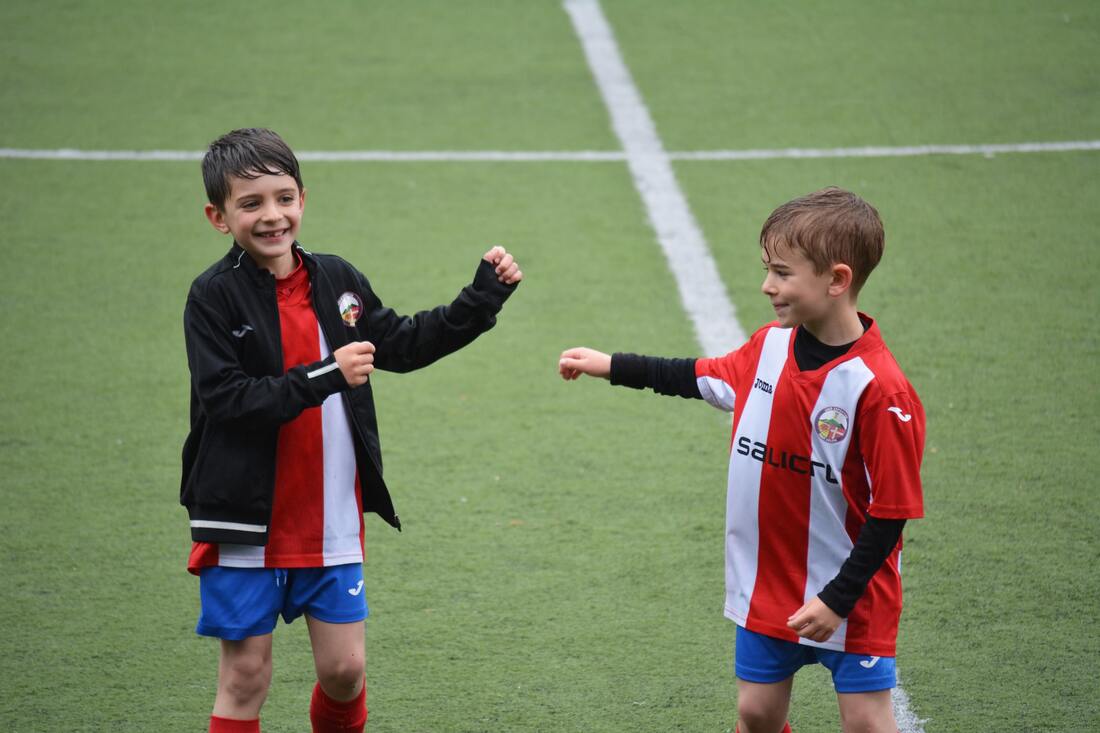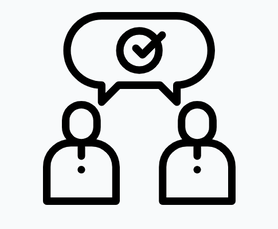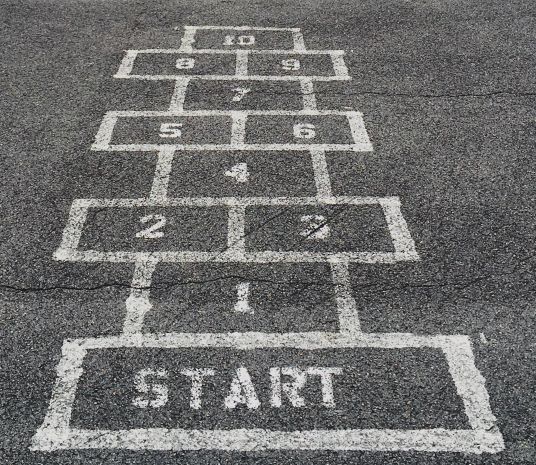|
Teens and preteens are challenging, changing, fascinating and tremendously fun to parent. Their views on the world are often very different from their parents and they often see situations differently from the adults around them. Last month I wrote about why that might be. This month I’m focused on some strategies that work to support you and your offspring to enjoy this time. The late Celia Lashlie in her book, He’ll be OK: growing gorgeous boys into good men, advocates providing very clear boundaries against which young people can push but not break through. Within these boundaries she suggests allowing children and teens to make their own mistakes so that they can discover their own limitations. Nigel Latta another author of numerous parenting books and a highly qualified clinical psychologist also advocates a not too tight and not too loose approach. During this time, it’s useful for parents to re visit their rules and expectations to make sure they are still fit for purpose. While a younger child might be expected to come straight home from school, if they are independently travelling, an older child might be allowed some extra time to socialise with friends on their way home.
Opportunities for frequent contact with your child can become more difficult to find at this stage. Gone are the night-time stories, bath time supervision and other routines that allowed you to spend time together. Parents of teens need to look for those opportunities and ring fence them. Dinner time as a family may not be possible every night due to sports, cultural or other activities but prioritize at least a few nights when your family eat a meal together and share how your day has gone. Take advantage of those times when you drive your child to a sporting or other event to have casual conversations. It is important to be very clear about your expectations in terms of social issues that will be coming into focus for your child. What are your expectations around use of alcohol, drugs, and romantic relationships? Some of these conversations can be awkward and difficult to have but if you don’t talk about them your child will not only be getting this information from another source, they may see you as being unapproachable about these topics. We also deprive our children of a tool they can use if they are facing some peer pressure around a behaviour. The, “My parents said that if I do that I’ll be in big trouble” tool. Our kids need to know that in a difficult situation their parents are prepared to take the fall. The “my mum/dad is such a pain they never let me do that/go there/stay there”, excuse. My top tip for having these conversations is to go in and say your piece and then back away and leave it all to sink in. After a period go back in again and repeat or expand your point. This gives everyone time to digest what has been said and come up with questions or clarifications. On that note it is also very important to be conscious of our own behaviour. A young person will be watching their parents to see how this adulting thing is done so consider modelling or showing them the behaviour, you are hoping to see your child replicate. Of key importance is that if you do something your regret in front of your child explain that you made a mistake and tell them what you have learned and will be doing differently based on this experience. No one is perfect but it’s what we do once we’ve made a mistake that makes the difference. Enjoy this time and watch with awe as your child, preteen and then teen develop into the wonderful adults we hoped they would. If parenting your teen is becoming a real struggle look for other resources for support. The parenting place run sessions specifically for parents of teens, https://www.theparentingplace.com/teenage-years/ your GP, school staff may be able to provide another perspective on the situation, an educational or clinical psychologist can also be helpful.
0 Comments
You are all the proud parents of either pre-teens or teenagers and as you will all be aware this is a time of tremendous developmental change. As a psychologist I’m fascinated by this period of change and am curious about the reasons for these behaviours. As a parent I was probably as bewildered and confused as anyone about what was with my teenagers.
Understanding what’s underlying and driving some of these confusing behaviours can be helpful in developing useful parenting strategies. Developmentally adolescents are on the next stage in their journey towards becoming independent adults. Moving from being totally dependent on their parents as babies and toddlers towards developing the skills that will allow them to live independently. Teenagers are renowned for pursuing excitement, novelty, taking risks and preferring the company of their peers to parents and other mature adults. These traits can make them challenging to parent and war stories of difficult teenagers abound. Neuroscience has been able to tell us that adolescent brains have already reached 90% of their full size, so it’s not that teenagers are lacking in brain cells. However, during adolescence the brain does a tremendous amount of re organising which slowly progresses over the teen years and into the early 20s. The advantage of this re organisation is that brain processes become much speedier and more reliable, but this comes at a cost of some flexibility, we lose the ability to so easily add to our behavioural repertoire. If we consider language acquisition, we know that babies are born with the ability to learn any language they are consistently exposed to. As we grow and develop our understanding of our primary language/s it becomes more difficult to learn an additional language. We do become much speedier and more efficient at understanding our primary language, but it comes at the cost of flexibility to add new languages. These behaviours of seeking excitement, novelty and risk and preferring the company of peers are all symptoms/evidence of a much more flexible brain that serves the purpose of allowing teenagers to move into new and challenging situations in a way that many of us adults would hesitate to do. Hopefully with some more insight into why teenagers do what they do we can better choose parenting strategies that can support this transition into adulthood smoothly and with a little less conflict. Parental involvement that allows independence while providing the reassurance of connection is likely to be the most successful approach. Next post I’ll be talking more about specific parenting approaches that work well. Wayne Goldsmith is a well known coach and in this Radio NZ podcast he talks about how to encourage kids to continue playing sports and to keep them from dropping out of playing sports after age 13. Wayne talks about the joy of sport for kids and the need for the adults around kids sports to ensure that they have fun. He identifies the need for kids sports to give them great stories to share on Monday mornings at school and possibly even later in life.
He encourages coaches to inspire, engage and empower kids. He talks about how coaches can counter the lure of games like Fortnight and digital devices in general. A fantastic way to spend 20 minutes listening to a great interview. https://www.rnz.co.nz/national/programmes/afternoons/audio/2018699101/wayne-goldsmith-on-how-we-keep-nz-kids-playing-sport Just a short post today answering a frequently asked question. Can I see you for just a chat?Yes, absolutely. I am happy to talk about situations occurring at home or school and take a problem-solving approach with ideas about how to make things go better. Sometimes an hour appointment can help parents to clarify things in their minds and they are able to manage the situation on their own from that point onwards. Other times, if the situation is more complex, I can meet for a series of sessions to unpack complex problems and provide support. I’m always mindful of the cost of visiting a psychologist in terms of money but also of people’s time. I encourage people to call or email me as I’m happy to spend 15 minutes discussing a situation free of charge. If I think I can help I’ll suggest an appointment, but it may well be that I can quickly re direct you to the person who can help.
I don’t provide talk therapy such as psychotherapy or on-going counselling. I can provide referrals on to psychologists or therapists who do provide this kind of support if that is what you require. Hopefully this has provided some useful answers but please feel free to ask more questions. You can post questions on my FB page, on the blog page or email me directly. As someone who has worked in special education for many years classroom observations are a familiar routine for me. I have realised since moving into private practice that it’s a bit of a foreign concept for most parents. I thought I’d write about the process of a classroom observation to de mystify it.
Sometimes it is helpful for me to see a child’s behaviour in the context that it happens. If the leadership team of the school and the class teacher have given their consent for me to observe I can come into a classroom or other school setting to see what is occurring. I usually observe for a maximum of 20-30 minutes although I may book a longer appointment. This gives me time to get settled into the room and to chat with staff if there is an opportunity to do so. I ask teachers to introduce me (if they wish to do so) as someone who is there to observe in the school to see how things work in that class or school. I ask them not to identify me as there to observe a student. Generally, I tuck myself in an out of the way spot in the room and take notes of what I am seeing. Sometimes children ask me what I’m doing so I usually have a general response prepared. My aim is to be as unobtrusive as possible whilst acknowledging that just by being there I’m changing the dynamic of the classroom somewhat. Teachers are used to someone observing in their classrooms as this is often part of professional development. It can be very difficult when the teacher is focused on teaching a lesson to see the very small details of an individual child’s behaviour. Quite often what I can see as an outside observer isn’t possible for even the perfect teacher to see. Usually observations are part of a wider assessment and I will provide a written report including my conclusions about what I’ve observed. The report will also include some recommendations about how to help the student engage better with learning. One or both parents usually accompany children/young people to the appointment. We spend the first 15 minutes chatting and getting to know each other. Sometimes I have follow up questions from the written questionnaires which we can cover at this time. Parents then leave and I will work 1-1 with your child.
Usually we start with a cognitive assessment which will provide information about how your child thinks compared to other children of the same age. If you are booked for a formal assessment you might tell them that once they are comfortable with me, you will leave us alone and that we will be working through a range of different activities together. I often use the word activity rather than test as it can have quite negative overtones. The activities are often very short lasting only a few minutes and are different from the kinds of assessments or activities undertaken in school. Once we complete the cognitive assessment, we take a short break for a snack and a walk around to get some fresh air. My office is based on a school campus which means there is equipment to play on and plenty of space to move around during our break. After this break we usually complete the achievement assessment which will provide information about how your child is learning at school when compared to other children of the same age. These are a series of short activities which while more like school activities or assessments are different than what your child usually encounters. At some point during the appointment I usually try to encourage the child/young person to share with me their thoughts on the situation. I usually bring some simple games with me like tic tac toe which allow us to chat whilst doing an activity. I also have some strengths-based cards which are helpful to encourage discussion. At the end of the assessment session you will pick your child up. They may be tired as the sessions are intense but usually, they can return to school with no difficulty in the afternoon. When will we find out the results of the assessment? I don’t usually provide any feedback about the assessment on the same day as the assessment. This is because I like to take my time and consider what I saw and what the results are telling me. The assessments themselves are quite complex and require more than a superficial calculating of numbers in order to interpret the results. I also like to take my time to write a report that is clear, easy to read and contains useful suggestions for support. This can take me a week to 10 days to complete. As soon as I’ve finished writing the report, I send it out and make the offer to schedule a feedback meeting face to face. What should I bring with us to an assessment? Thinking uses up energy so ensure your child has something to snack on when we take a break. A water bottle is also a good idea. Bring any further information that you think may help me to understand the situation, this could be school reports or reports from other professionals. Over the past year since I began seeing clients privately, I have been asked a range of questions by parents about what to expect on the day that they bring their child to see me. Today I thought I’d start a series of posts covering some of these questions. For the next few weeks I’ll post answers to a range of questions that parents have asked me. As I tailor the experience of each child/young person to their specific needs these are general ideas.
What should I tell my child about seeing a psychologist? My advice is always to be honest but gentle with your child. It is likely they are very aware of any difficulties with learning or behaviour they may have. Make sure to use language that your child understands and is appropriate to their age and developmental stage. Tell them that you are coming to see me so that I can help to find a way to make the situation work for them and for your family. Your child may feel more comfortable if they have a chance before the appointment to know a little about me. You could show them my pictures on my website and checkout the page with information about me on my website, https://www.edpsych.co.nz/about-the-psychologist.html Welcome back to the 2019 school year. Hopefully everyone has had a chance to have a break and some down time from the busy school schedule during term time. Many schools will be starting back in the next week or so. Getting back to the school routine can be a challenge. As I’ve mentioned before change is tricky for everyone, but there are lots of things you as parents can do to help your child. Here are my top tips for making the transition back to school an easy one.
A few days before school starts: Start getting everyone back into their usual sleep routines. This one can be tricky with the long days we are experiencing but try shifting in small increments of 15 minutes each day so that at least once school starts your child will be able to have a reasonable amount of sleep. Discuss what the getting ready for school routines in the morning and at night will look like. Ask your children to share their ideas. It may be helpful to start with to write the steps down and have them somewhere central for children and adults to refer to. An evening and a morning routine will ensure that there is time get everything done. Check in with school websites and or re read email or paper communications from school on first day and week routines. Talk positively about the upcoming school year and the fun and interesting learning that will occur. To support children with specific concerns: If your child has very specific learning or behaviour needs or has experienced some big life changes during the break, I recommend you contact your child’s school and let them know what the situation is. If you don’t know who the teacher is for 2019 you can always contact someone on the leadership team who can pass the information on to the correct person. If your child is attending a new school or is anxious about starting back it may be helpful to go for a visit to the school and walk around checking out the playing fields and equipment as well as the layout of the buildings before school starts. Throughout the school year but especially in January and early February: Once school has started make sure you look for any opportunity to attend parent evenings, school picnics and so on. Many schools provide a range of options and while it’s not necessary to attend all your child’s education will be all the richer for your participation and interest in what they are doing at school. The things I’ve listed seem simple but as is often the case if you get the basics right it’s possible to avoid needing to manage more difficult situations.  The idea comes from the British pediatrician and psychoanalyst Donald W. Winnicott who was born in 1896. In his book Playing and Reality, (London: Tavistock, 1971) Winnicott proposed the idea of the good enough mother. As might be expected for a man of his time, he saw active parenting, particularly of infants, as the domain of mothers. If we shift the concept into current times, and consider that the idea of good enough applies to the people/person who is actively parenting rather than gender, it is a useful way of thinking for all of us involved in parenting or working with children and young people. In essence, Winnicott is suggesting that initially parents provide everything an infant needs. At times parents even anticipate what they might need. For example, mums and dads swaddle their babies and lie them down soon after a feed knowing that their baby often needs to sleep after eating. As parents settle into the routines of the new baby they may momentarily delay providing what is needed. A baby may be left to cry for a moment before mum or dad comes to get them up from a sleep because the caregiver may be playing with a sibling or completing a household or work task. As children grow and develop this becomes a familiar pattern in that the early total devotion to an infant isn’t possible to sustain in the real world of siblings, work and household commitments. Often parents feel guilty about this split of roles and responsibilities. The good enough parenting concept helps us to make sense of the realities of parenting. The delays in delivering what an infant and child want are actually a good thing. They help our infant begin to develop their idea of self-concept, that they are separate from their caregivers and helps them to feel secure in their relationships with their caregivers. They learn that when their needs are not satisfied immediately there is no cause for concern. So next time your child demands your attention for entertainment or food or other and you have to say ‘in a minute’ or ‘not right now’ instead of feeling guilty pat yourself on the back and tell yourself that you are being a good enough parent and that is in fact being an excellent parent! |
AuthorRobyn Stead, Child Psychologist and Educator, lives and works in central Auckland. Archives
March 2022
Categories
All
|








 RSS Feed
RSS Feed
